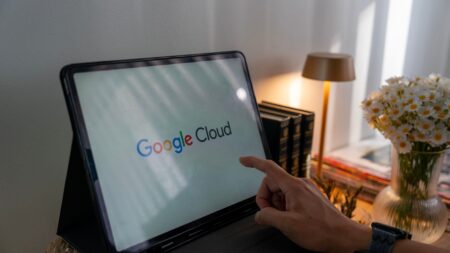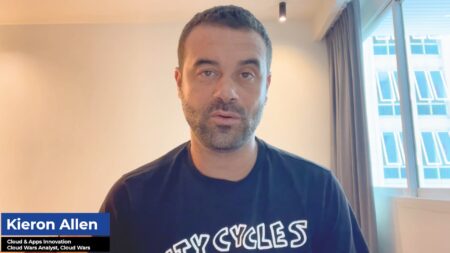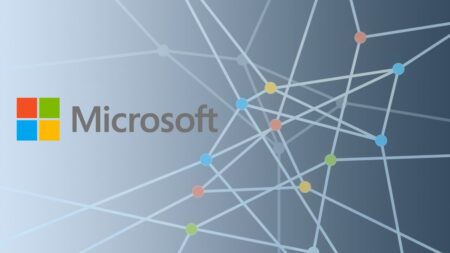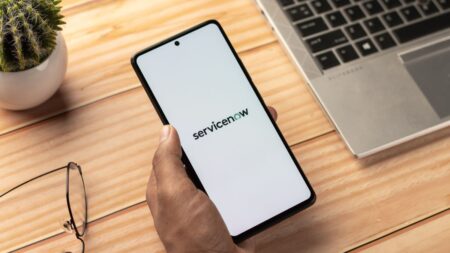While I still believe there’s only a minuscule chance that Salesforce is getting into the HCM business, after this week’s stunning announcement about Microsoft and Oracle partnering up in the cloud, it’s probably best to never say never.
With the enterprise-cloud marketplace undergoing tremendous growth and corporate customers showing massive appetites for cloud services of all kinds, all of the major SaaS players are aggressively expanding their portfolios of cloud-based apps.
In that context, it would hardly be surprising to learn that Salesforce, which to date has confined its massive ambitions exclusively to the CRM segment of the SaaS business, might be at least open to the possibility of expanding into additional SaaS categories broadly defined as HCM and ERP.
But, theory aside, a foray into HCM would force Salesforce into direct and costly competition with, among others, longtime ally and partner Workday, whose CEO Aneel Bhusri has been close friends with Salesforce founder Marc Benioff for many years.
Salesforce and HCM: Questions Raised on Q1 Earnings Call
So what’s the source of this speculation?
That would be none other than Benioff himself, who used Salesforce’s earnings call earlier this week to animatedly describe on a couple of occasions how his company’s very excited about jumping into the emerging category of “employee experience.” And that employees are now a vital part of the company’s new “Customer 360” strategy and positioning, which I wrote about earlier this week in Salesforce’s New Strategy: All-In on ‘Customer 360,’ Powered by MuleSoft.
Whether you want to categorize Salesforce’s recent move into the small but booming field of employee experiences “HCM” or not, there is no question that Salesforce intends to expand its business into a slice of applications that is certainly not a natural fit with its longtime domain of CRM.
Here’s the scenario:
In the Q&A portion of the earnings call, an analyst asked a series of questions that included this one: “And then given your continuous mentions of Trailhead and talent as being important strategic differentiators, are you giving any thought to expanding your role in the talent market?”
After co-CEO Keith Block replied to other parts of the analyst’s multi-part query, Benioff offered this response.
“I just wanted to touch on the part about employee experience. This has really become a critical part of Customer 360 because employees inside of our customers need to have a good experience and need to have access to all of that customer information as well. And a great example this quarter is Southwest Airlines,” said Benioff, noting Southwest’s heavy usage of Salesforce’s Service Cloud.
“And now Southwest is really turning to employee experience. So they’re using our communities product and Service Cloud and a centralized HR help desk to enable their 60,000 employees to check benefits, manage rotation time, and ask questions via chat.”
Now, while that’s all sure starting to sound a little HR-y, Benioff said it’s not—oh, absoLUTEly not.
Salesforce and HCM: Benioff and Block Quash Speculation, Kind Of
“I don’t want anyone to think in any way that this means we’re going into HRMS or anything like that,” Benioff insisted.

“Instead, this is something that very much enhances the customer experience and also the employee experience and strengthens the intersection between employees and customers.”
Benioff went on to say that the integration of customer information into employee-collaboration systems was a major driver behind the company’s decision to acquire Quip, which he said is “all about getting employee productivity up via collaboration.”
And just in case that wasn’t perfectly clear, president of product development Bret Taylor and co-CEO Block each added qualifiers.
Taylor said, “Today, whether you’re in the airline industry or the hotel industry or the retail industry, the most important thing you need to do is empower employees to be able to really touch the customer community. And time and time again, what I hear from CEOs is about employee enablement: how do I help my employees through this digital transformation of technology? Because it’s not just about the technology—it’s also about the human beings who are going through that change.”
Then Block emphatically stated that Salesforce is not—not!!—getting into the HCM business. Rather, he said, the market has “morphed” to the point where customers and employees are inseparable.
“When we talk with customers and specifically position ourselves to the C-suite, I always say very specifically that we only have really one word that defines our company—and that’s ‘customer.’ We’re just here to do that for you,” Block said.
“We’re not going to do HR, we’re not doing financials, we’re not doing all these other things. We’ll never do that as a company.” (My italics.)
Block continued: “For the past 20 years, I’ve been focused on this word ‘customer’ and it has morphed, it’s changed, it’s evolved. So when you look at what we’re doing with Customer 360, our approach today is very different from where we were 10 years ago or even five years ago. And we talk about where that intersection between employee and customer is, and where that transformation is going.”
Okay—glad we cleared that up!
Salesforce and HCM: The Real Story
Now, as I said at the top, I’m 99% certain Salesforce is not planning an assault on the HCM market, regardless of the widespread land-grabbing going on across the entire SaaS universe.
Rather, as I wrote about earlier this week, Salesforce is undergoing a repositioning of itself and the unique value it offers to customers, and I believe that as part of that, Salesforce wants to engage and embrace employees as key stakeholders in that customer-first capability the company claims it can deliver to businesses.
But for an orator as skilled as Benioff, I’m surprised he didn’t make it more clear at the outset that Salesforce’s new appeal to employees is a fundamental component of the Customer 360 program rather than a sideways lurch into an adjacent space.
A lot of the commentary from Block and Benioff about what Salesforce is *not* doing would have been unnecessary if they’d articulated more clearly what they *are* doing: enlisting employees as full-scale evangelists in the customer-driven digital economy.
Subscribe to the Cloud Wars Newsletter for in-depth analysis of the major cloud vendors from the perspective of business customers. It’s free, it’s exclusive, and it’s great!







